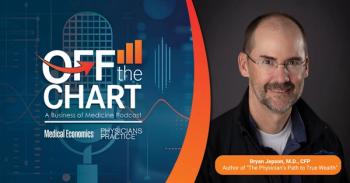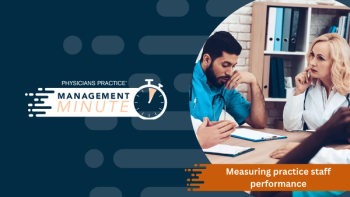
Twelve Factors that Can Lead to Physician Stress
Physicians are not the only professionals who are prone to workplace stress. But it is just as vital that they recognize the signs of overload.
A growing number of career professionals - not just in healthcare - think that they are in a profession that uniquely contributes to stress. Insurance agents think that the insurance industry is inherently stressful. Taxi drivers know that they're in a stressful job.
A study by the New York State Society of CPAs found that most CPAs agree that public accounting is a high-stress profession. Anyone in the collections department of a major organization can tell you that there are a plethora of built-in stressors when you attempt to collect money from others.
Let's face it: your job can be stressful. The symptoms of stress exhibited by people in highly stressful occupations range from frequent illness to nervous ticks and even mental lapses. Most frequently, people in these professions experience:
• Rapid pulse
• Frequent illness
• Insomnia
• Persistent fatigue
• Irritability
• Lack of concentration
• Increased use of alcohol and drugs
Hopefully, the above items are not your issues.
The dirty dozen
What are the factors at hand that tell you if your career, and your position in particular, are too stressful? Try these on for size:
1. Are you constantly working in overtime, particularly at the last minute?
2. Do face constant interruptions?
3. Do you face role ambiguity that is you don't have a clear definition of what's expected of you?
4. Do you face conflicting demands? If you have one or more bosses, and many people do, sometimes to please one you have to displease the other.
5. Excessive job requirements. Are you given tasks and assignments which clearly exceed your ability or training?
6. Lack of job security. Are you working someplace, not knowing from day to day how secure you are with the organization?
7. Do you have an inflexible work environment? Do you have to be in by 8:30 a.m. on the button? Are you allowed to leave to pick up your son early one night? If not, stress could be predictable.
8. Is there a healthy career progression? Do you have enough opportunities for advancement? Does hard work merit rewards?
9. Is your work emotionally draining?
10. Do you face emergencies and crises that in and of themselves would cause anyone high stress?
11. Do you have responsibility for the performance of others?
12. Do you have to sometimes fire workers? Fortune magazine reports that even top executives who've fired dozens of people, after years, still find this to be a highly stressful aspect of their position.
Finally, it can be stressful if you're being under-used (not likely). If the job that you have does not offer a significant enough challenge, surprisingly, that can be as stressful as one that offers too much of a challenge.
Newsletter
Optimize your practice with the Physicians Practice newsletter, offering management pearls, leadership tips, and business strategies tailored for practice administrators and physicians of any specialty.








